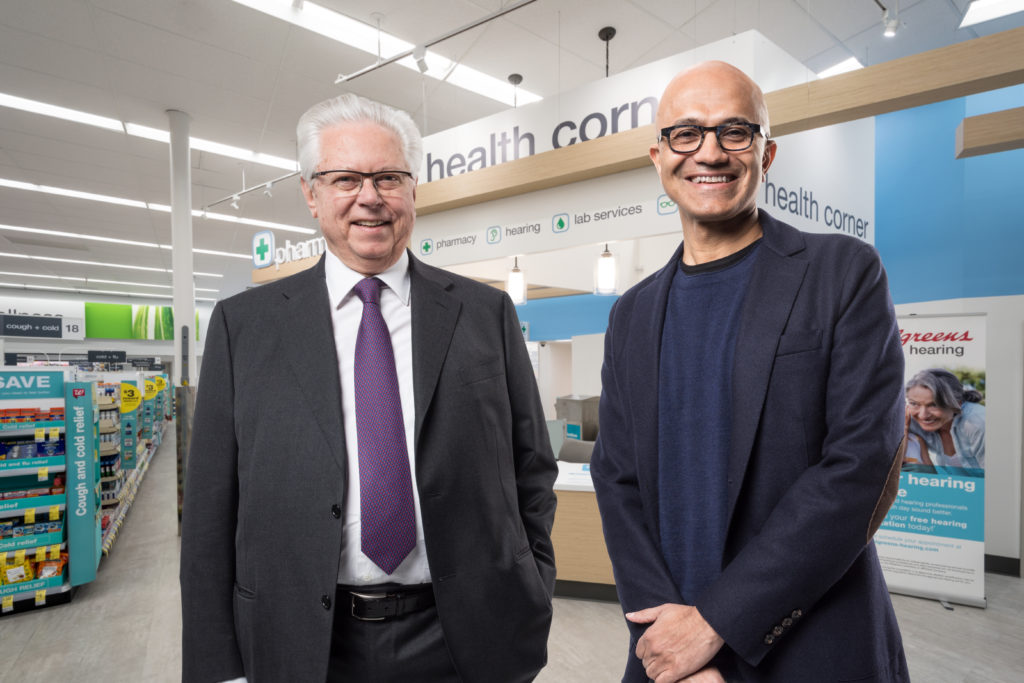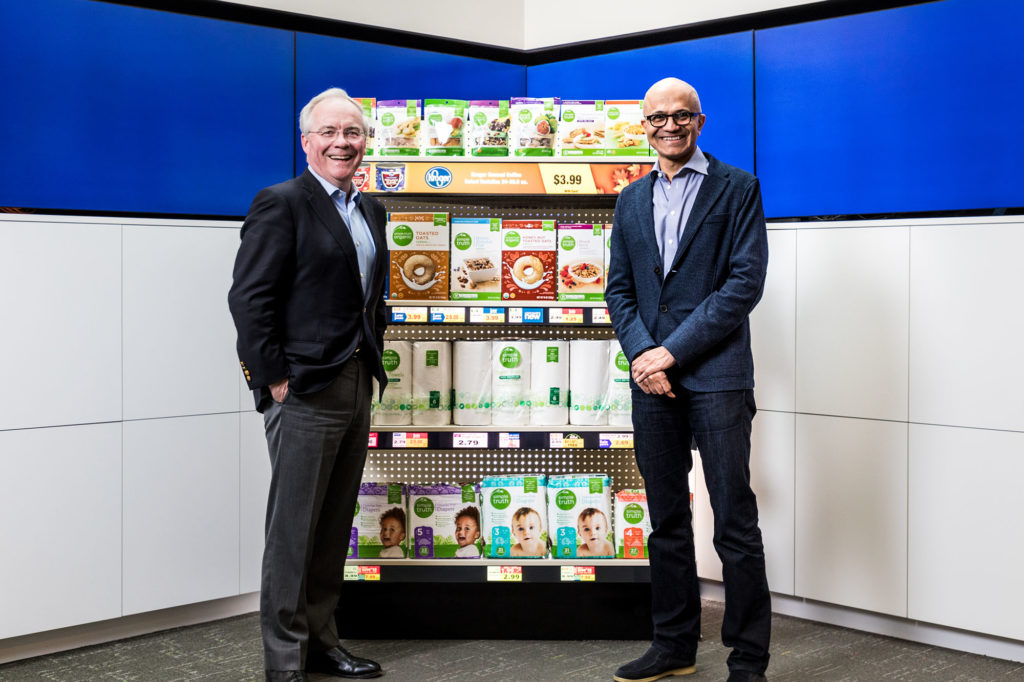By Jean-Philippe Courtois, Executive Vice President and President, Microsoft Global Sales, Marketing and Operations
In today’s artificial intelligence-powered Fourth Industrial Revolution, change has become the new constant for both employees and employers. I’ve found the best way to keep pace is by advocating for a culture of constant learning. As technology continues to disrupt the way we live and work, companies willing to embrace continuous learning as a strategy for navigating change will not just survive, but flourish.
As Boston Consulting Group pointed out in its 2018 report, “It’s Not a Digital Transformation Without a Digital Culture,” any company that hopes to compete in an AI-driven global economy must rethink its way of doing business. Make no mistake, the challenges associated with reimagining every aspect of a company’s operations — and figuring out how and when to partner with other businesses — are enormous. But so are the rewards.
The good news is that by constantly learning, adapting, and innovating, we can prepare for digital transformation, and ultimately drive change.

How A Cultural Shift Can Spark Transformation
One of the ways that today’s larger organizations successfully manage innovation is by shifting from a culture focused on buying and selling to one that instead places the most value on people and process. Businesses that previously purchased software or hardware a few years ago are now actively partnering with digital-first companies to expand their own businesses and grow the skills of their employees.
In a digital age, speed-to-market is paramount. Collaborating with another company, such as a leader in a different area of expertise, can help get a product to customers quicker than ever before. When Walgreens Boots Alliance (WBA), the largest retail pharmacy corporation in the U.S. and Europe, partnered with Microsoft to improve the future of healthcare, we focused on people-centered collaboration and the chance to develop a culture of learning. Employees at Walgreens now use Microsoft’s AI-powered cloud platform every day while providing personal, affordable and accessible healthcare.
This change can also be seen in Microsoft’s partnership with Kroger as it redefined its customer the shopping experience by piloting a Retail as a Service (RaaS) product in stores. From a consumer perspective, the pilot program integrates customers’ digital and offline shopping experiences, like offering personalized, in-store discounts based on shoppers’ online preferences. Kroger employees feel this transformation as well. Retail store associates are now learning to run Azure-powered analytics to track inventory. By literally putting the power of the world’s most advanced technology in their hands, Kroger shows its employees that their skills remain relevant and valuable, while offering them a clear stake in how the company operates. At both Kroger and WBA, a cultural shift was essential to ensuring digital transformation could happen successfully.

It’s Time to Establish a Continuous Learning Agenda
Digital transformation is now redefining work and reshaping corporate culture, while also enabling companies to teach, inspire, and retain employees for a versatile, engaged workforce.
Almost two years ago, Microsoft transformed its commercial sales model, shifting its focus to servicing customers with people and process at its core. This sparked a major investment in continued education, requiring thousands of employees to learn more technical knowledge. Since then, with Microsoft Learn, employees have earned certificates and attended courses in everything from machine learning and web-client services to managing cloud-optimized networks. In the end, this drives job security, grows marketable skills and opens opportunities for career growth.
Microsoft is so enthusiastic about establishing a culture of learning that we’re driving digital transformation in other businesses. Our AI Business School features top industry executives offering insights on everything from implementing AI to discovering why a holistic approach can positively impact corporate behavior, business capabilities, and morale.
Microsoft is also partnering with Paris-based OpenClassrooms, the world’s leading online education-to-employment platform. The demand for workers with AI and machine learning knowledge exceeds the number of people in these roles, and that demand is continuing to grow as AI becomes more central to how companies operate. In the next three years, it’s estimated that a talent shortage will leave close to one third of AI-related jobs unfilled. Our partnership with OpenClassrooms will provide 1,000 candidates in France, the UK, and the US with master’s-level, project-based training in AI. These people will immediately contribute to the digital economy, while employers receive a pipeline for new talent.
How Partnerships Enable Digital Transformation
I realized the need for a professional culture of learning a few years ago. At the time, Microsoft was developing its groundbreaking partnership with the world’s largest automotive alliance, Renault-Nissan-Mitsubishi (RNM), to deliver connected services in millions of vehicles across hundreds of markets. We were building the most ambitious connected-vehicle program in history by uniting worldwide data platform with AI and cloud technologies.
I was struck by how much there was to learn about the global automobile industry. Microsoft has a long and successful track record of partnering with companies across every imaginable industry, but the company didn’t fully appreciate how steep this learning curve would be. If we were going to provide RNM with support for years to come, as opposed to just selling them a product and service, we had to deeply understand the automotive industry. With augmented reality, robotics, and other digital developments transforming the way vehicles are designed, manufactured, and maintained, our salespeople are now learning to think like engineers, and in a sense, our engineers are learning to sell.
Our customers are on a similar journey. From the start, people at every level in RNM were trained in the capabilities of cloud tech, AI, and more. The vehicles from RNM in the coming years will be the most technologically sophisticated the world has ever seen. And those that make these vehicles are now as comfortable working with AI as anyone at Microsoft. That is what a culture of learning looks like.
Nothing Learned, Nothing Gained
Today, companies everywhere are taking a long, hard look at the way they do business, and how they can adapt to digital transformation as a defining feature of business. Fortunately, a number of companies can serve as models for how organizations large and small can successfully navigate digital transformation. The key is to embrace a digital-first culture, and to foster a corporate environment where learning is celebrated and, above all, rewarded. In an age when change is constant, a culture of learning can help a company keep pace with that change, and stay a step ahead of the competition. How have you embraced a learning culture at your organization?





